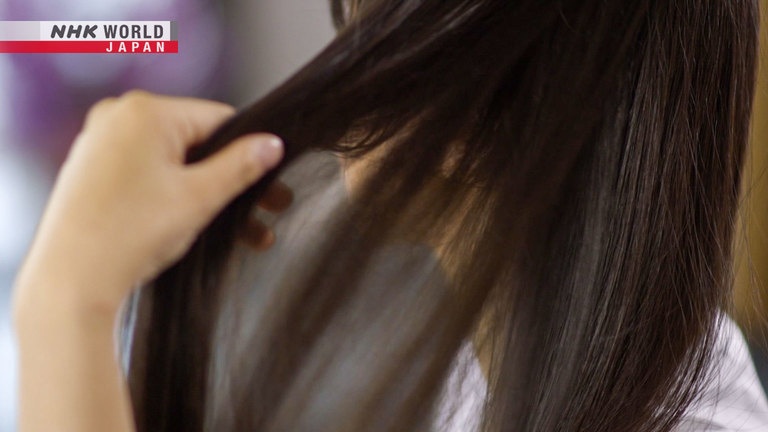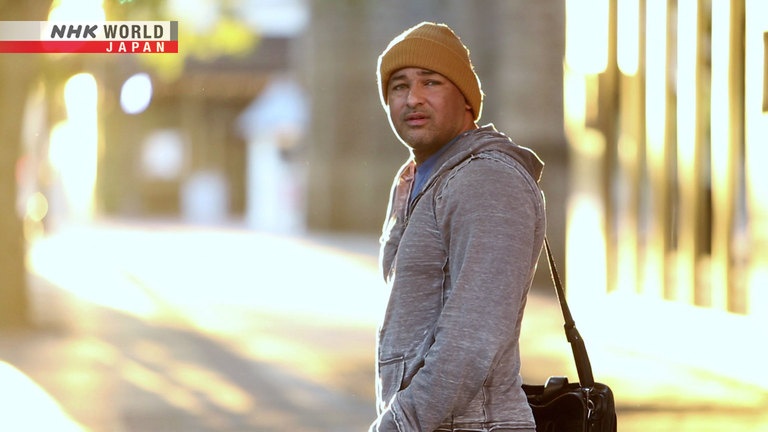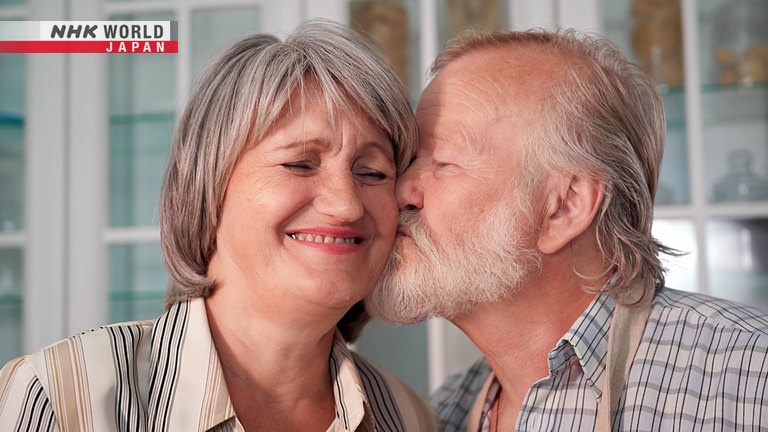Hair
The Japanese language is rich in words and expressions influenced by nature, history and culture. This episode focuses on unique words related to kami, or "hair."




Transcript
"Yukigesho."
"Karakurenai."
The Japanese language is rich in unique expressions that reflect nature and culture.
Magical Japanese.
Today's theme is "kami," or hair.
Hair has long held important symbolic meaning in Japanese culture.
Locks of hair from the deceased have traditionally been kept by loved ones as a keepsake.
At shrines and temples hair has been used as a symbolic stand-in for a person.
Let's take a look at the many Japanese expressions related to hair.
Hello, I'm Peter MacMillan.
When people talk about uniquely Japanese hairstyles,
the famous "chonmage" of the samurai often comes to mind.
Nowadays, vestiges of this style can be found in the hair of sumo wrestlers.
The hair gathered on the crown of the head is called "mage," or "topknot" in English.
It seems to have come from how men would tie their hair up in a bundle when wearing kanmuri hats.
The chonmage style spread to the ordinary folk during the Edo period.
Young boys kept a fringe, but when they officially became adults,
they changed their hairstyle along with their clothes.
All of the hair from the fringe to the crown of the head was shaved off.
The hair on the back of the head was kept long and gathered together in a topknot.
Speaking of the hair on the back of the head, we have this interesting expression.
"ushirogami o hikareru."
"Kami" changes to "gami" when combined with other words.
"Ushiro" means "in back of" or "behind" and "hikareru" means "to be pulled."
The phrase is used when you are very reluctant to leave someone or something,
just as if your hair is being pulled from behind.
I heard you got a new kitten.
Yes, she's adorable!
I feel like I'm "ushirogami o hikareru" - leaving my heart behind - when I leave for work.
"ushirogami o hikareru."
"ushirogami o hikareru."
No matter what your ethnic background, your hair will turn gray or white as you grow older.
These are called "shiraga" in Japanese.
And there is a lovely expression that uses the word "shiraga."
"tomoshiraga."
"Tomo" means "together."
"Shira" is "white" and "ga" is another reading for "kami."
The phrase describes a couple growing old together until their hair turns gray.
It's often used at weddings.
Congratulations on your marriage!
I hope you can become "tomoshiraga" - a happy old couple.
Like us!
"tomoshiraga."
"tomoshiraga."
Over a thousand years ago, women of high status in Japan considered long, straight hair to be beautiful,
so they grew their hair long and cared for it diligently.
Commoners, on the other hand, tied their hair up in simple hairdos,
because long hair could get in the way of their work.
In the early 1600s, a popular stage performer made more complicated hairstyles fashionable among the commoners.
These styles eventually developed into the so-called "nihongami," or "Japanese hairstyle."
It is quite difficult to fix a "nihongami" hairdo after it has come undone.
To avoid ruining the hairstyle while sleeping, special pillows were made to keep the head raised above the floor.
This gives you an idea of the deep commitment to beauty of the Japanese people.
When such nicely styled hair is disheveled, it is called "midaregami."
But why would one's hair get disheveled in the first place?
The following poem written in 1901, in the Meiji era, might give you some idea.
"midare gami o
kyo no shimada ni kaeshi asa
fushite imase no
kimi yuriokosu."
On the morning that I fixed
my hair in the Kyoto Shimada style
I said - "Stay asleep till it's done,"
then shake you to wake you up.
This poem describes the scene on the morning after a man and woman have made love.
The woman wants to make herself look beautiful, so she wakes up before the man
and fixes her disheveled hair into a "shimada" "nihongami" hairstyle.
Only then does she wake her lover up.
The author of the poem was the famous Yosano Akiko, who was involved in a passionate love affair at the time.
Could the disheveled hair in the poem have been a metaphor for her own tangled emotions?
One can only speculate, but the poetic use of such delicate nuance is one of the things that makes Japanese so magical.
"kan hatsu o irezu."
"Kan" means a gap.
"Hatsu" is another reading for "kami,"
here it means "as thin as a strand of hair,"
and "irezu" means "to not allow."
The phrase comes from Chinese and describes a gap so small even a strand of hair wouldn't fit.
It's often used when something happens so fast there's no gap in time - in other words, instantly.
Whenever I make a minor mistake during my presentation, my boss points it out "kan hatsu o irezu" - instantly.
"kan hatsu o irezu."
"kan hatsu o irezu."
"kiki ippatsu."
"Kiki" means a crisis, and "ippatsu" means a single strand of hair.
The phrase describes narrowly escaping a catastrophe.
"kiki ippatsu."
"kiki ippatsu."
You might have heard the word "ke," which also means "hair."
While "kami" refers only to the hair on your head,
"ke" is used for all types of hair, whether on your head, arms, legs, or anywhere else.
The next expression uses this broader definition of hair.
"ke no haeta."
"Haeta" comes from "haeru," meaning "to grow."
"Ke no haeta" means "with more hair grown" and describes something that is slightly advanced.
It comes from how newborn mammals gradually grow hair.
The phrase is also used self-deprecatingly to mean "not much better than."
Sir, you swing like a pro!
You flatter me.
I'm just a "ke no haeta" - slightly good - amateur.
"ke no haeta."
"ke no haeta."
So, what did you think of all these Japanese expressions related to hair?
Oh, but how time flies!
Although it feels like "ushirogami o hikareru" -
someone's pulling the hair on the back of my head, I must get going.
So, see you all next time. Bye.